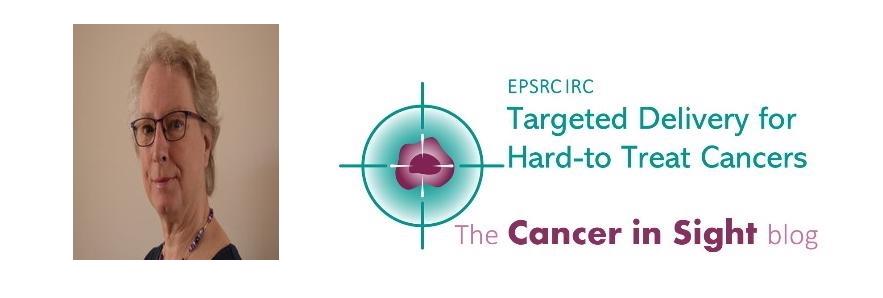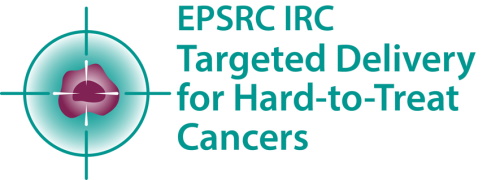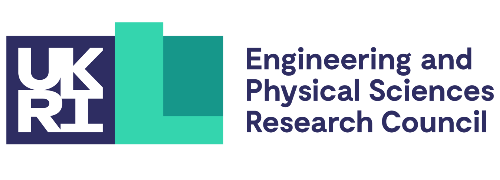
Sally, a patient and public involvement (PPI) member of the Cambridge Pancreatic Cancer Centre was diagnosed with pancreatic cancer in 2011. In this extended Cancer in Sight blog, she reflects on her diagnosis and treatment, the crucial role of research and offers advice to anyone who has recently been diagnosed.
I was diagnosed with pancreatic cancer in April 2011. My first symptom was dark urine, followed rapidly by becoming increasingly jaundiced. My husband, who was a molecular biologist before he retired, was concerned that it could be cancer – but I was adamant that it couldn’t be.
However, I clearly needed to visit the GP, who fortunately acted very quickly. I saw him on a Monday and was in the hepatology clinic by Thursday of that same week. It was not good news – I was told I had a mass at the base of my bile duct which needed to come out asap. Once I could assemble everything spinning around in my head, my first coherent thought was that I could be dead within a few weeks. It is a devastating diagnosis and one that takes a while to come to terms with.
While early diagnosis of pancreatic cancer is important, there is not sufficient awareness of the signs and symptoms which are so vague that people don’t realise the significance of a combination of them. My experience is that people generally know that patients die from pancreatic cancer but are appalled when they realise the true figures. Research is essential to improving the outlook for pancreatic cancer patients Sally, a pancreatic cancer patient and patient and public involvement (PPI) member of the University of Cambridge Cambridge Pancreatic Cancer Centre
I was very fortunate as I was suitable for surgery – there was no involvement of the major blood vessels found in that area. If the tumour infiltrates the blood vessels, you are not usually deemed suitable for surgery; only 20-25% of patients are operable. I had a Pyloric Preserving Pancreaticoduodenectomy (PPPD) at the Queen Elizabeth Hospital in Birmingham. A PPPD involves removing the necessary amount of pancreas, the whole of the duodenum (the first part of the small intestine), the gall bladder and the bile duct. Then the loose ends have to all be joined together. I live in Suffolk, but at the time there was a six-week wait for surgery at Addenbrooke’s and I felt I couldn’t wait that long, either physically or psychologically.
My surgery was followed by six months of chemotherapy and I returned to work about two months after finishing chemo – I was a physiotherapist and most of my career was spent at Papworth Hospital in Cambridgeshire. Everything seemed to be going well until my vision became very blurred and I was diagnosed with diabetes in 2012. I had a routine check-up at that time and the cancer markers in my blood were shown to be elevated. I was quickly booked for a CT scan which revealed a couple of peritoneal secondaries, and I started on a further six-month course of chemo – with no expectation of long-term survival. I took early retirement when my secondaries were diagnosed.
I was very apprehensive about chemotherapy – we hear so many things about it. Initially, I was given Gemcitabine and I felt a little unwell, but as the treatments progressed I felt increasingly nauseous and then vomiting became a regular feature until a good anti-emetic regime was found for me. I also found my hair thinned considerably and had a horrible taste in my mouth all the time. The second time I needed chemo, I was given Folfirinox, a cocktail of various chemotherapeutic agents. During my first treatment I suddenly found I couldn’t speak properly. Everything was immediately stopped, and I was rushed down the hospital corridor to have a scan to make sure I hadn’t had a stroke – all was ok, so I was sent home. That evening I began vomiting and I couldn’t even keep sips of water down. We drove back to A&E and I was eventually admitted. I remained in hospital for four days during which the palliative care team were involved to help with symptom management, and I was discharged with another anti-emetic regime. The anti-emetics worked well and I coped much better with subsequent treatments.
The end of chemo first time round felt like Christmas and the beginning of the school summer holidays all in one! Second time round it was just such a huge relief to have finished. I used to play mind games with myself – 12 treatments in all on Folfirinox sounded very daunting, but if I told myself I was a quarter of the way through after three doses, it felt so much more manageable.
I have been amazingly fortunate to have remained fit and well since then – until this year when I received a breast cancer diagnosis (another primary). I have now completed my treatment and am assured that no further problems are anticipated. I have also been fortunate receiving so much support from my immediate family and friends. Quite a few of them worked in healthcare so had some insights into my problems, which I found very helpful. Also, my church community were there for both me and my husband and my Christian faith particularly strengthened me.
I decided to send round-robin emails to my friends and family, partly in an attempt (it failed) to talk less about pancreatic cancer but also to stop the rumour mill. I wrote about how I was doing and when the next procedures and treatments were planned. People were incredibly concerned about my speech problems and wanted to know each time that I was ok. I wanted to reassure people that I was managing as I think they were pretty appalled at my diagnosis and what patients have to go through to have a chance of survival.
I also wanted to write as people were so kind to constantly want to know how I was. I found I was saying the same thing over and over again, so tried to circumvent that. It also meant that accurate information was out there. I don’t have family locally, so it was easier to keep them and friends who live out of area up to date without constantly being on the phone talking about pancreatic cancer. I was also astounded and very humbled by people who got their friends and churches across the country and even abroad to pray for me and keeping them in the loop was a tiny way of passing on my thanks.
These emails assumed a life of their own, people looked forward to them (I tried to make them as entertaining as possible under the circumstances) and the responses were so reassuring. It really helped to know how many people were rooting for me. It helped to keep things in perspective, both when things were ticking along and when they weren’t. When things were less than straightforward, it sometimes gave me permission to acknowledge that what I was going through really wasn’t easy. Also, the comments folk made were very positive and supportive and I felt so loved and valued. It was an incredibly nurturing time and with both that and the support and strength that I gained from my faith, it felt a real privilege to experience it, in the midst of such difficulty.
I also heard about a Facebook group for pancreatic cancer patients, for patients and run by patients, under the umbrella of the national charity Pancreatic Cancer UK (PCUK), which is @Pancreatic Cancer Patient Group UK ( Living with and Beyond) and very supportive. We meet up occasionally and have recently had our first in-person meeting since Covid. I now realise how much is offered by PCUK and while I haven’t used the support nurses myself, I know people who have found them to be amazing.
While early diagnosis of pancreatic cancer is important, there is not sufficient awareness of the signs and symptoms which are so vague that people don’t realise the significance of a combination of them. My experience is that people generally know that patients die from pancreatic cancer but are appalled when they realise the true figures. Research is essential to improving the outlook for pancreatic cancer patients. Pancreatic tumours aren’t as easy to deliver drug therapies to compared with many other tumours which is one of the reasons it is so intractable. I am a patient and public involvement (PPI) member of the University of Cambridge Cambridge Pancreatic Cancer Centre and I know that researchers there are tacking the issue from several different angles – and I would urge them to continue.
As a PPI member, I can attend the business and science meetings, give opinions on proposals and put the patient’s perspective forward. Members can highlight the things that are important to us as patients as well as any aspects that are difficult for us enabling the clinical and scientific approaches to be seen though our eyes. This can change the way the professional staff want to direct their research or involve patients on a wider level. We aim to help the trials/treatment process seem less remote and more involving and accessible for patients in the long run. We are made to feel an integral part of the whole process, which is a privilege.
I have also benefitted from research – my first chemo treatments were part of a trial at Addenbrooke’s. My second course was an experimental treatment, which is now mainstream. I have taken part in several studies and bits of my original tumour have been distributed to various labs around the country! I hope by participating in studies I can help researchers in their attempts to find better treatments and ways to diagnose the disease at an early stage.
Participating in studies also ensures that the voice of the patient is heard – and I think that is important. I know from personal experience, given my husband’s work, that scientists can become a bit blinkered. Hearing the voice of the patient helps them put their endeavour in focus and even to think in a different way occasionally.
Receiving a diagnosis of pancreatic cancer is life changing. But to anyone who has been recently diagnosed, I would say don’t be daunted by the statistics – they are just that, statistics. You are an individual and who knows how it will turn out for you? Be as positive as you can. Be realistic about the disease but remember everyone’s journey is their own. Talk to people, especially those who help you to be positive. Social media groups can be really useful but be selective. I have only used the one, which is for patients. Other people I know have told me that groups where relatives are also participating can be a bit harrowing. Search out trials and ask your oncologist about availability of trials. Take part in what you can. It may benefit you and then hopefully others. You will be benefiting from what others before you have done.
The support offered by people who have also had the same diagnosis is incredibly helpful. They “just know”, which means there’s so much you don’t have to explain. It also means they will not be fazed discussing topics you might not normally discuss with your nearest and dearest – often involving the bathroom.
Experimental trials and innovative research aim to make a positive difference to people’s experience of pancreatic cancer. I am testament to that – I certainly didn’t expect to still be alive and well 11 years after my diagnosis.


